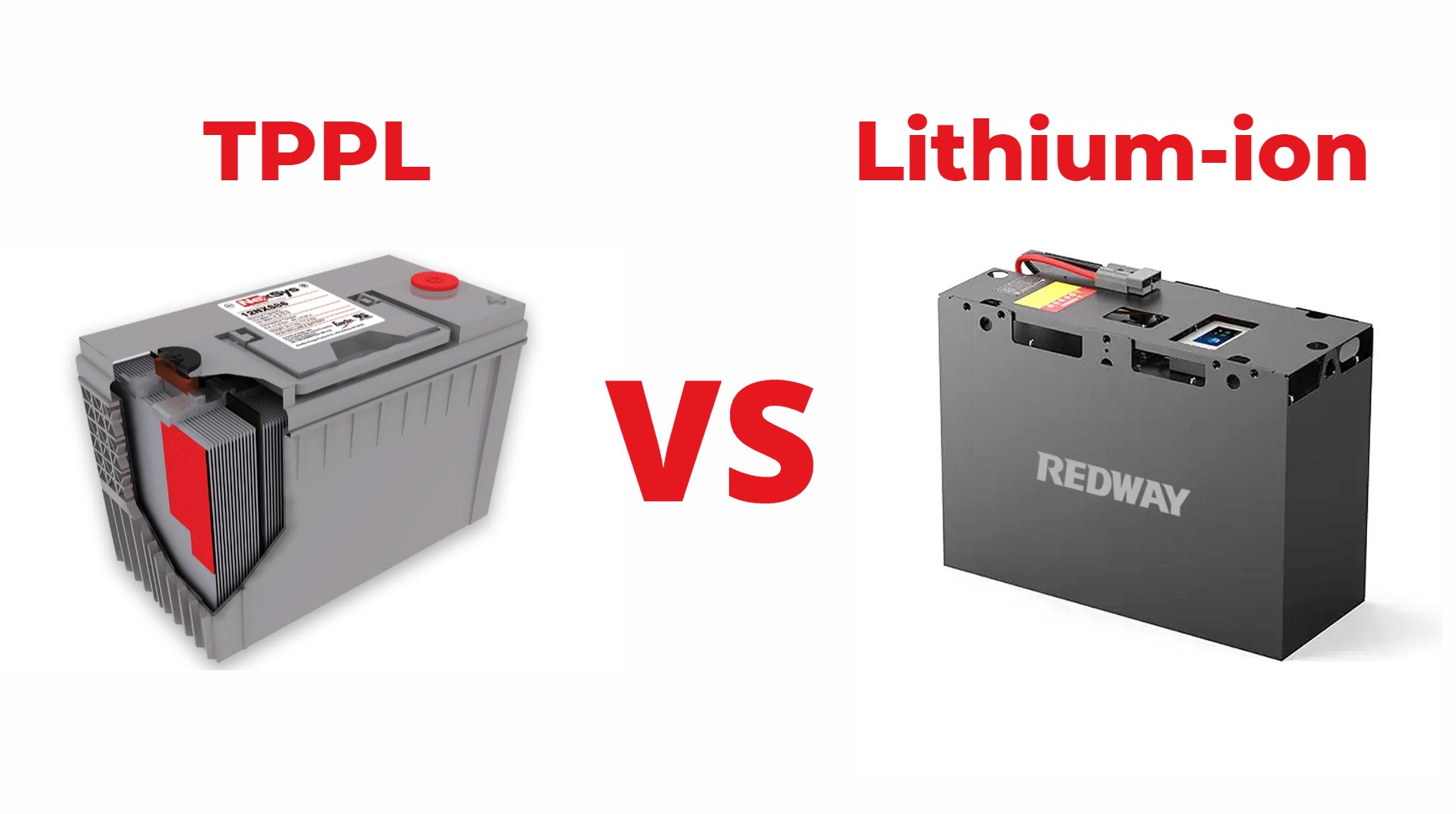The development of battery technologies for forklifts has seen significant advancements in recent years, with Thin Plate Pure Lead (TPPL) and Lithium-ion (Li-ion) batteries emerging as the leading options. Both technologies offer distinct advantages and challenges, shaping the decision-making process for material handling operations.
Understanding Thin Plate Pure Lead (TPPL) Batteries
TPPL batteries are a type of lead-acid battery distinguished by their use of pure lead plates. This innovation enhances several performance metrics compared to traditional lead-acid batteries, though it still faces limitations when compared to Lithium-ion batteries.
Lead-Acid Battery Technology Basics
Lead-acid batteries operate on a fundamental electrochemical principle involving lead plates immersed in an electrolyte solution of water and sulfuric acid. As current flows through the battery, a chemical reaction forms lead sulfate on the plates, which influences the battery’s voltage and capacity.
Advancements in TPPL Technology
TPPL batteries represent an evolution of traditional lead-acid batteries, featuring thinner plates that increase surface area and reduce internal resistance. This design improvement allows for quicker recharging and higher current delivery with minimal voltage drop.
Key Features of TPPL Batteries
- Thinner Plates: More reactive surface area and lower internal resistance.
- Maintenance-Free Operation: No need for frequent water top-ups.
- Lower Gas Emissions: Reduced environmental impact during operation.
- Enhanced Cycle Life: Better performance under repeated micro-cycles of discharging and partial recharging.
Lithium-ion Batteries: The Future of Forklift Power
Lithium-ion batteries, particularly Lithium Iron Phosphate (LFP) variants, are becoming the preferred choice for larger forklift fleets due to their superior energy density, longer lifespan, and decreasing costs.

Advantages of Lithium-ion Batteries
- Higher Energy Density: Provides more power in a lighter and smaller package.
- Superior Performance at Low Temperatures: Maintains conductivity and efficiency in sub-zero environments.
- Longer Service Life: Greater return on investment through extended operational life.
- Decreasing Costs: Economies of scale and technological advancements are driving prices down.
Comparison of TPPL and Lithium-ion Batteries
Energy Density
Lithium-ion batteries offer a significantly higher energy density compared to TPPL batteries, making them ideal for applications requiring sustained high power.
Depth of Discharge
Lithium-ion batteries can be discharged deeper than TPPL batteries without compromising longevity, allowing for more efficient energy use.
Temperature Performance
While TPPL batteries struggle in extreme temperatures, lithium-ion batteries, especially those with built-in thermal regulation like the OneCharge FROST package, perform reliably in harsh conditions.
Potential Improvements in TPPL Technology
Despite the current limitations, there are several areas where TPPL technology could see advancements:
Thinner Electrodes and Grid Perforation
Enhancing the design of electrode plates by increasing perforation can improve electrolyte-electrode contact, thus boosting the electrical capacity.
Use of Lighter Materials
Introducing lighter materials like titanium for grid construction can decrease the overall weight and increase the specific energy of TPPL batteries.
Carbon Additives
Incorporating carbon additives in plate coatings can prevent the formation of passive lead sulfate layers, improving the active mass involved in reactions.
Economic Constraints
However, these improvements come with increased manufacturing costs, potentially making TPPL batteries less economically viable compared to lithium-ion batteries.
Market Trends and Future Outlook
The material handling equipment (MHE) industry is experiencing significant growth, with an increasing shift towards electric trucks. According to the EUROBAT 2030 Battery Innovation Roadmap, the demand for lithium-ion batteries is expected to increase tenfold by 2030, while the market share of lead-acid batteries is projected to drop substantially.
Conclusion
While TPPL batteries have advanced the capabilities of lead-acid technology, lithium-ion batteries remain the superior choice for most forklift applications due to their higher energy density, better performance in extreme temperatures, and decreasing costs. As the industry continues to evolve, it is clear that lithium-ion technology will dominate the market, driven by ongoing innovations and increased demand for efficient, reliable power solutions.



